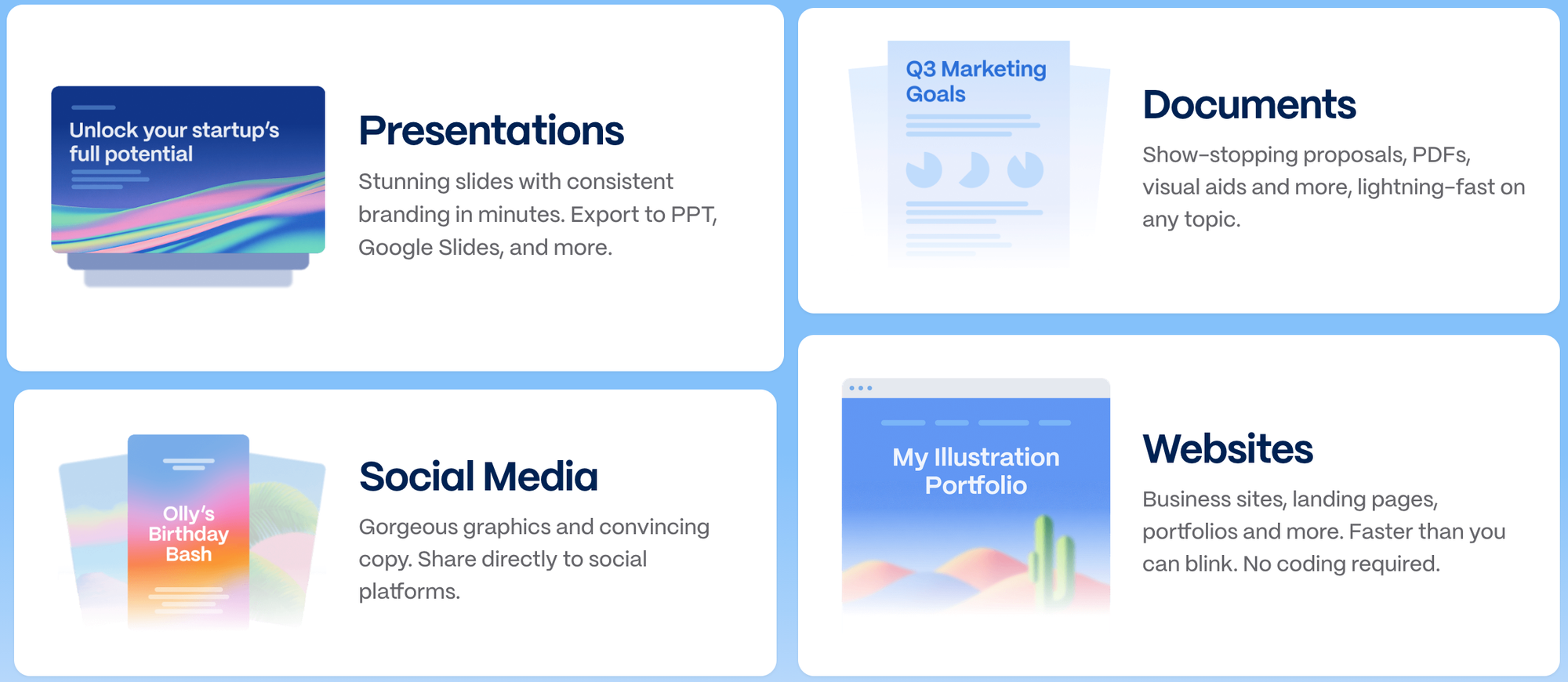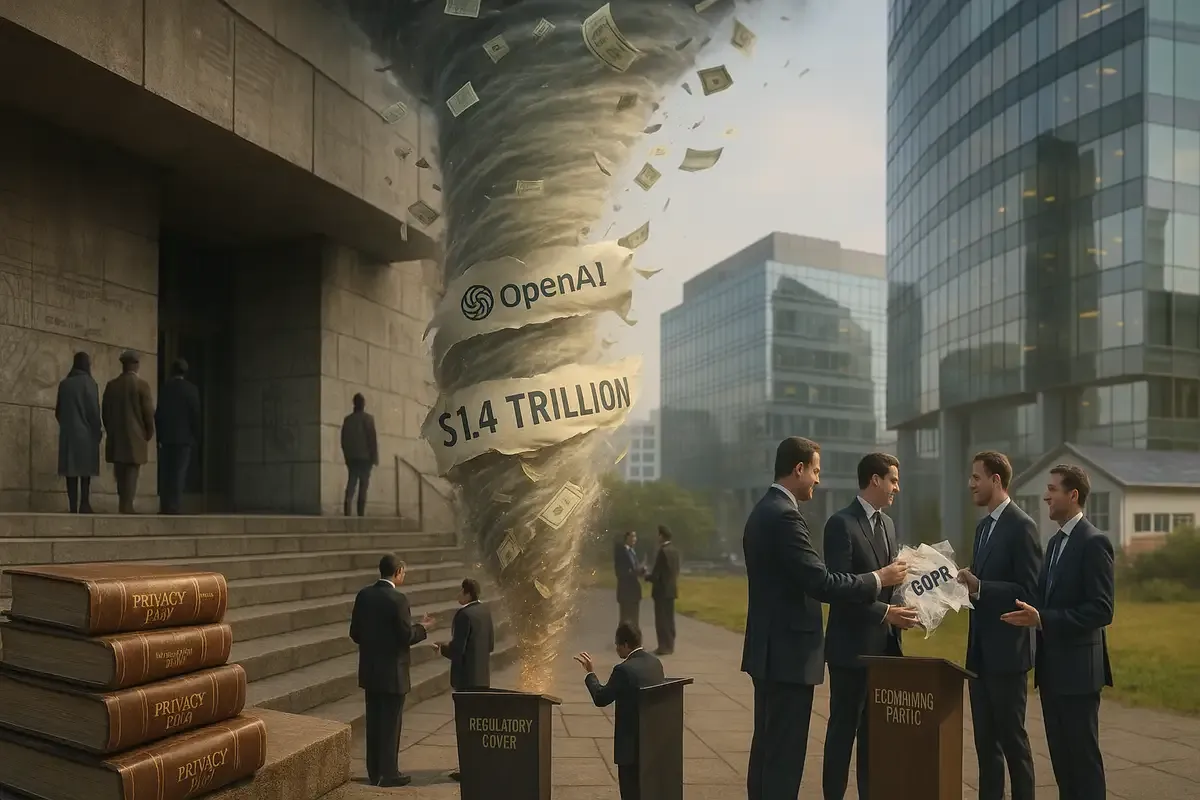Good Morning from San Francisco,
Germany invented modern privacy law in 1970. Built from surveillance trauma. Today it leads the demolition. The leaked GDPR rewrite adopts corporate wish lists, redefines personal data, and gives AI companies what they wanted after getting told no. Economic panic creates convenient regulatory cover.
Meanwhile, OpenAI wants $1.4 trillion in government support. That's 5% of US GDP over eight years. Sam Altman's CFO said the government should "backstop" infrastructure loans, then claimed she misspoke. The policy team sent letters anyway. Software companies with sustainable models don't need CHIPS Act intervention before proving markets exist.
Two stories about who writes the rules when money gets nervous.
Stay curious,
Marcus Schuler
Germany rewrites privacy law it invented

October 23, 2025. Germany sends 19 pages to the European Commission requesting GDPR changes. Rebalance consent. Narrow personal data definitions. Permit AI training under legitimate interest. Berlin wrote Europe's privacy architecture.
Hesse's 1970 law came first globally, trauma-built response to Nazi census abuse. Now Germany leads the demolition.
The leaked Commission draft adopts German asks wholesale, sometimes going further. Personal data gets redefined using "subjective approach" logic. User12473 isn't personal data anymore. AI training gets explicit permission via new Article 88c. Meta tested this boundary without permission in May 2024, got stopped, then got approved May 2025. Five months later the Commission proposes making Meta's approach official policy.
Official justification centers on SME compliance burden. Actual beneficiaries? Companies operating pseudonymous tracking at scale. Organizations with computational resources for large language models. OpenAI. Google. Microsoft. Meta.
Why this matters:
• Regulatory capture through competitiveness panic. Economic anxiety, Trump's return, and trillion-dollar lobbying created political cover to weaken fundamental rights through procedural shortcuts that bypass normal impact assessments.
• First-mover advantage flips. Germany built European privacy from surveillance ashes. Structural forces, economic desperation, and corporate pressure turned the architect into executioner.

AI Image of the Day

Prompt:
A gothic hip-hop icon, wearing a white diamond-studded beanie and gold sunglasses, flashing diamond-covered gold teeth, adorned with heavy golden chains and luxurious jewelry. He wears extravagant streetwear with ripped jeans. Golden energy bursts beneath his feet, scattering money fragments in the air. The background is deep blue with swirling smoke, gothic atmosphere, dramatic lighting, ultra-detailed, surreal luxury, dark elegance, cinematic composition.
OpenAI: The circular financing unwinds

Sam Altman projects $20 billion revenue by December and "hundreds of billions by 2030."
His CFO suggested the government should "backstop" infrastructure loans, then claimed she misspoke. His policy team sent the White House a letter requesting tax credits for AI data centers, normally reserved for semiconductor fabs. The requested figure: $1.4 trillion over eight years, roughly 5% of US GDP.
The bottleneck isn't chips anymore. It's power infrastructure with 18 to 24 month lead times for transformers. OpenAI has backed into running a utility-scale buildout while maintaining tech company multiples.
The circular problem: OpenAI buys compute from infrastructure it helped finance, using revenue from products on that infrastructure. Microsoft invests, provides Azure capacity, takes ChatGPT revenue share. Growth covers structural gaps until it doesn't.
Why this matters:
• Software companies with sustainable models don't lobby for CHIPS Act intervention before proving markets exist
• The $1.4 trillion commitment either forces government support or reveals private markets won't finance at sustainable terms

🧰 AI Toolbox
How to Generate and Enhance Stunning Images and Videos with AI in Real-Time

Krea AI is a powerful creative suite that generates, enhances, and upscales images and videos using artificial intelligence. It offers real-time rendering, multiple AI models, image upscaling up to 22K resolution, and specialized tools for logos, patterns, and video creation. Perfect for designers, marketers, and content creators who need professional visuals fast.
Tutorial:
- Go to the Krea AI website and create a free account
- Choose your creation mode: generate images from text, enhance existing images, or create videos
- Enter your text prompt or upload an image to enhance
- Select from multiple AI models and styles to match your creative vision
- Watch as Krea generates your image in real-time (under 3 seconds for most images)
- Upscale your creation to ultra-high resolution or use specialized mini apps for logos and patterns
- Download your professional-quality visuals for immediate use in any project
Better prompting...
Today: Extracting Key Insights from a longer article
Find the key insight in this text. State it in one sentence, then explain why it matters and what it shows about the topic.
AI & Tech News
AI Misuse in Legal Filings Surges as Lawyers Document Hundreds of Cases
A group of US lawyers has documented 509 cases of artificial intelligence misuse in legal filings during 2025, including instances of fabricated citations and other errors generated by AI tools. Despite these documented problems, judges and bar associations continue to permit the use of AI in legal practice, creating a growing divide between lawyers who embrace the technology and colleagues who are actively tracking and publicizing AI-generated mistakes.
TSMC October Sales Growth Slows to 16.9%, Weakest Since February
Taiwan Semiconductor Manufacturing Co. reported a 16.9% increase in October sales, marking its slowest growth rate since February 2024 as concerns mount over the sustainability of the artificial intelligence boom. Despite the deceleration in monthly growth, TSMC shares remain strong with a 37% gain year-to-date, though the slower pace highlights investor uncertainty about continued AI demand momentum.
Robinhood CEO Plans Fund to Give Retail Investors Access to Private AI Companies
Robinhood CEO Vlad Tenev announced plans to offer retail investors exposure to private artificial intelligence companies through a Robinhood Ventures fund containing at least five "best in class" AI firms. The initiative aims to give "normal people" access to private AI investments that are typically reserved for institutional investors and wealthy individuals.
Microsoft Recruits US Influencers to Promote Copilot Chatbot
Microsoft has enlisted popular American influencers to help promote its Copilot chatbot as the company seeks to compete more effectively with OpenAI's ChatGPT. According to Sensor Tower data, Copilot has achieved 99 million downloads since its launch, significantly trailing ChatGPT's 1.4 billion downloads.
Rumble to Acquire German AI Infrastructure Firm Northern Data for Up to $970 Million
Video platform Rumble has agreed to acquire German AI infrastructure company Northern Data in a deal valued at up to $970 million, with the transaction expected to close in the second quarter of 2026. The acquisition brings together two companies that are both backed by cryptocurrency stablecoin issuer Tether, marking a significant consolidation in the AI infrastructure space.
Amazon Expands Low-Cost Shopping Service Globally
Amazon is expanding its budget-focused Haul shopping service to 25 countries and regions worldwide, one year after its initial launch, while rebranding the service as "Amazon Bazaar" in select markets. The e-commerce giant is also planning a two-day sales event as part of the expansion, intensifying competition in the low-cost retail segment amid increasing pressure on Chinese competitors from tariffs.
UK Illegal Sports Streaming Rises to 4.7 Million Adults
A new YouGov survey reveals that 9% of UK adults, approximately 4.7 million people, watched sports through illegal streaming services in the six months leading to October 2024, representing an increase of about 200,000 viewers from 2023. The research, reported by The Athletic, indicates that illegal streaming of football is growing in the UK, with most fans supporting the removal of the traditional Saturday 3pm broadcast blackout.
Semiconductor Industry Challenges New Patent Fee Structure
The Semiconductor Industry Association (SIA) has formally urged the U.S. Patent and Trademark Office to abandon its proposed plan to replace the current flat-fee patent system with annual fees ranging from 1% to 5% based on government-assessed patent values. The semiconductor industry views this shift as a potentially harmful "tax on innovation" that could significantly impact the sector's intellectual property costs and development strategies.
Mercor CEO Claims Company is Creating New Work Category as Revenue Soars
Mercor CEO Brendan Foody believes his company is pioneering a new category of work as the platform reached $500 million in annual recurring revenue in September. The company now processes $1.5 million in daily payments to contractors, positioning itself as a significant player in the evolving gig economy and remote work marketplace.
Amazon's "House of David" Dramatically Increases AI Usage in Season Two
Amazon's biblical series "House of David" incorporated 350 to 400 AI-generated shots in its second season, a dramatic increase from the 70+ AI shots used in season one, utilizing 10 to 15 different AI tools including technology from companies like Runway. The show, which depicts David's rise to become King of Israel, has drawn criticism for its expanded use of artificial intelligence, particularly in battle scenes, representing a significant shift toward AI-generated content in mainstream television production.
🚀 AI Profiles: The Companies Defining Tomorrow

Gamma
Gamma turns text into decks, docs, and sites in seconds. Three ex-Optimizely engineers built it to kill the pixel-pushing that eats half your workday.
The Founders
Grant Lee, Jon Noronha, and James Fox launched Gamma in 2020 from San Francisco. Lee ran finance at Optimizely. Noronha led product. Fox handled engineering. They shipped fast, tested constantly, and brought that velocity to Gamma. The company now has 52 people and runs profitable.
The Product
Gamma spins prompts into finished presentations. Type an idea. Get a designed deck. The AI picks layout, generates images, structures flow. You edit in place. One click restyls everything. It works for decks, documents, websites, social posts. The engine uses OpenAI, Claude, Gemini. Whatever model fits the job. Users have made 250+ million pieces. Export to PowerPoint, Slides, PDF. Gamma ships an API for scale workflows. SOC 2 certified. Built for teams that need speed without design overhead.
The Competition
Microsoft bundles Copilot into PowerPoint. Google puts Gemini in Slides. Both own distribution. Beautiful.ai, Tome, Prezi, Pitch, and Canva all fight for the upstart lane. Gamma bets that AI-native beats "good enough" bundled features. So far, viral growth backs that claim.
Financing
Gamma raised $68 million on November 10, 2025 at a $2.1 billion valuation. Andreessen Horowitz led. Earlier backers include Accel, Script Capital, and South Park Commons. Total funding sits around $80-90 million. The company hit $50 million ARR before crossing unicorn status.
The Future ⭐⭐⭐⭐
Gamma sells time. Minutes matter. The company ships fast, burns little, and already proved the model works. Now it chases enterprise with APIs, admin controls, and compliance badges. Risk? Incumbents improve every quarter. If Gamma keeps saving more minutes than Microsoft and Google, it wins. Right now, momentum says yes. 🚀










